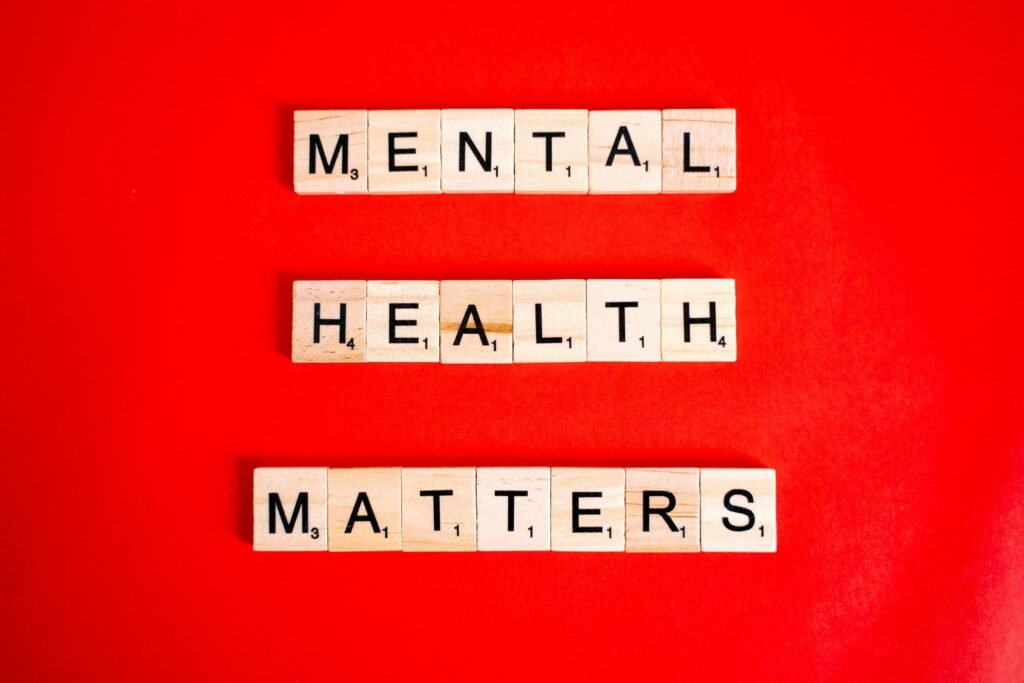
Understanding Mental Health
Understanding mental health involves appreciating the complexities of our emotional, psychological, and social states.
It’s not just about feeling good; it’s about functioning well in daily life, managing stress effectively, and maintaining positive relationships.
Mental health plays a crucial role in determining how we handle various situations and make choices.
One key aspect of mental health is emotional well-being.
This means having the ability to understand and express emotions in a healthy way.
When you can identify what you’re feeling and why, you’re better equipped to cope with challenges and avoid being overwhelmed by them.
Emotional intelligence helps you navigate the ups and downs of life more smoothly.
Another important factor is psychological well-being.
This includes having a sense of purpose, engaging in activities that you find meaningful, and maintaining a positive outlook on life.
It’s about more than just avoiding mental illness; it’s about cultivating a mindset that allows you to thrive.
Practices such as mindfulness and gratitude can significantly contribute to this aspect of mental health.
Social well-being is also essential.
Humans are inherently social creatures, and our connections with others have a significant impact on our mental health.
Strong social networks provide support, reduce feelings of loneliness, and give us a sense of belonging.
Engaging in community activities and maintaining close relationships with family and friends can bolster this area of well-being.
It’s crucial to recognize that mental health doesn’t exist in isolation.
It’s deeply interconnected with physical health.
For example, regular exercise not only keeps your body fit but also boosts your mood by releasing endorphins.
Similarly, a balanced diet nourishes both your body and mind, providing the nutrients necessary for optimal brain function.
Sleep is another critical component of mental health. Poor sleep can lead to irritability, difficulty concentrating, and heightened stress levels.
Establishing good sleep hygiene, such as maintaining a consistent sleep schedule and creating a restful environment, can significantly improve your mental well-being.
Understanding mental health also means being aware of potential warning signs of mental health issues.
These can include persistent sadness, extreme mood changes, withdrawal from social activities, and changes in eating or sleeping patterns.
Early recognition and intervention are key to managing these issues effectively.
In summary, mental health is a multi-faceted concept that encompasses emotional, psychological, and social dimensions.
By understanding and addressing these components, you can build a strong foundation for overall well-being.
Connection to Physical Health

Physical health and mental health are deeply intertwined, with each influencing the other.
One of the most effective ways to boost mental well-being is through regular exercise.
When you engage in physical activity, your brain releases endorphins, which serve as natural mood enhancers.
This can help reduce symptoms of anxiety and depression, boost your self-esteem, and improve sleep quality.
Your diet is another critical factor that can affect your mental state.
Consuming a balanced diet rich in fruits, vegetables, whole grains, and lean proteins supports brain function and mood stability. In contrast, diets high in processed foods and sugars can lead to mood swings and mental fatigue.
Ensuring that you nourish your body with the right nutrients can have a profound impact on your mental well-being.
Mind-body practices such as meditation also play a significant role in linking physical and mental health.
Additionally, studies have found that meditation can significantly decrease LDL levels and the expression of inflammatory genes in individuals with hypertension and diabetes.
Engaging in activities that combine physical movement and mindfulness, such as yoga, can also be particularly beneficial.
Yoga not only improves flexibility and strength but also helps in managing stress and enhancing mental clarity.
By focusing on your breath and the present moment during yoga, you create a bridge between your physical and mental states, fostering a sense of overall balance.
It’s also worth mentioning the impact of sleep on mental health.
Poor sleep can lead to increased irritability, difficulty concentrating, and higher stress levels.
Adopting good sleep hygiene practices, such as maintaining a consistent sleep schedule and creating a restful sleeping environment, can significantly enhance your mental well-being.
By paying attention to these physical health aspects, you can create a robust foundation for better mental health.
Remember, taking care of your body is a vital part of maintaining a healthy mind.
Emotional Wellness

Emotional wellness is all about recognizing, understanding, and managing your emotions.
Developing emotional intelligence equips you to handle life’s challenges more effectively.
It starts with acknowledging how you feel and pinpointing the root causes behind those emotions.
This self-awareness can be the first step in addressing any emotional turmoil you might be experiencing.
Once you’ve identified your feelings, it’s crucial to process them healthily.
This could involve activities like journaling, where you put your thoughts and emotions down on paper.
Another effective method is talking with a trusted friend or family member.
These practices can provide an emotional release and bring clarity, helping you see situations from a new perspective.
Building resilience is another key aspect of emotional wellness.
Resilience is your ability to bounce back from adversity, learn from experiences, and adapt to change with a positive mindset.
Techniques like meditation can help build this resilience.
Another valuable skill in maintaining emotional wellness is emotional regulation.
This involves strategies to manage intense emotions, such as deep breathing exercises, progressive muscle relaxation, or engaging in physical activities like walking or yoga.
These methods can help calm your mind and body, making it easier to handle stressful situations without becoming overwhelmed.
Practicing gratitude is also beneficial for emotional wellness.
Taking time each day to reflect on what you are thankful for can shift your focus from what’s going wrong to what’s going right.
This shift in perspective can enhance your overall mood and emotional state.
Don’t underestimate the power of setting healthy boundaries either.
Knowing your limits and communicating them to others can protect you from emotional exhaustion.
Whether it’s saying no to extra work or taking time for yourself, setting boundaries is crucial for maintaining your emotional health.
Lastly, cultivating a positive outlook can go a long way in boosting emotional wellness.
This doesn’t mean ignoring life’s difficulties but rather focusing on solutions and what can be learned from each experience.
Techniques like cognitive reframing can help you view challenging situations from a different, more positive angle.
Social Support Networks

Building strong social support networks is a cornerstone of mental health.
The connections we foster with family, friends, and even colleagues serve as a lifeline during challenging times.
These relationships offer emotional support, practical assistance, and a sense of belonging that can significantly enhance your well-being.
To cultivate these essential connections, consider engaging in community activities.
Whether it’s participating in a local club, joining a sports team, or volunteering, these interactions provide opportunities to meet new people and strengthen existing bonds.
Shared experiences and common interests make it easier to form meaningful relationships that can offer emotional support when needed.
Regular communication is also vital. In today’s digital age, staying in touch has never been easier, yet we often neglect it.
Make it a habit to check in with loved ones, whether through a quick text, a phone call, or a video chat.
These small gestures can make a big difference in maintaining strong, supportive relationships.
Don’t underestimate the power of listening.
Being a good listener not only helps others feel valued and understood but also deepens your connections with them.
When you actively listen, you create an environment where people feel comfortable sharing their thoughts and feelings, fostering mutual trust and support.
Quality over quantity is another key principle.
It’s not about how many friends you have but the quality of those relationships.
Invest time and effort into nurturing a few close relationships rather than spreading yourself too thin.
These deeper connections are more likely to provide the emotional support and understanding that are crucial for mental well-being.
Engaging in interest-based groups can also be beneficial.
Whether it’s a book club, a gardening group, or an online forum dedicated to a hobby you love, these communities offer a sense of belonging and an opportunity to connect with like-minded individuals.
These interactions can enrich your life and provide a support network beyond your immediate circle.
If you’re feeling isolated, don’t hesitate to seek out new social opportunities.
It might feel uncomfortable at first, but stepping out of your comfort zone can lead to rewarding relationships and a stronger support network.
Remember, building social connections takes time and effort, but the benefits to your mental health are well worth it.
Managing Stress

Stress is an unavoidable part of life, but how we manage it can make a world of difference to our mental health.
Various techniques can help keep stress levels in check, enabling us to handle life’s challenges more effectively.
One effective method to manage stress is through deep breathing exercises.
This technique helps calm your nervous system, promoting relaxation.
Start by taking a slow, deep breath in through your nose, allowing your abdomen to rise as your lungs fill with air.
Hold the breath for a moment, then slowly exhale through your mouth.
Repeat this process a few times, focusing on the breath’s rhythm to bring your mind and body to a calmer state.
Progressive muscle relaxation is another useful tool.
This involves tensing and then slowly releasing each muscle group in your body, starting from your toes and working your way up to your head.
By consciously relaxing your muscles, you can reduce physical tension and ease stress.
Effective time management also plays a crucial role in stress reduction.
Organizing your day and prioritizing tasks can prevent you from feeling overwhelmed.
Break larger tasks into smaller, more manageable steps, and allocate specific time slots for each activity.
This can help you stay focused and productive, reducing the stress associated with looming deadlines.
Balancing work and personal life is essential for keeping stress at bay.
Make sure to set boundaries that allow you to have downtime and engage in activities that bring you joy.
Whether it’s spending time with loved ones, pursuing hobbies, or simply relaxing with a good book, these moments of respite are vital for maintaining mental well-being.
It’s important to recognize when stress is becoming too much to handle.
If you notice that stress is affecting your sleep, mood, or overall health, take proactive steps to address it.
This might involve adjusting your workload, seeking support from friends or family, or incorporating more relaxation techniques into your routine.
Mind-body training can also be highly effective.
Practices like meditation have been shown to reduce levels of C-reactive protein, which can help manage stress and its effects on the body Mind-body training, including meditation, has been shown to reduce C-reactive protein levels, which can help manage stress and its effects on the body.
By incorporating these practices, you can cultivate a sense of inner peace and resilience, making it easier to navigate stressful situations.
Mindfulness and Relaxation Techniques

Mindfulness and relaxation techniques offer practical tools to enhance your mental health.
By practicing mindfulness, you can train yourself to stay present and fully engage in the moment, which can help in reducing stress and increasing emotional balance.
One way to incorporate mindfulness into your routine is through meditation.
This practice involves focusing your mind on a particular object, thought, or activity to achieve a mentally clear and emotionally calm state.
Start with just a few minutes a day, gradually increasing the time as you become more comfortable.
Guided meditations can also be helpful, providing structure and focus.
Yoga is another excellent method to promote relaxation and mindfulness.
Combining physical postures, breathing exercises, and meditation, yoga can help reduce anxiety and improve mental clarity.
Even simple poses and stretches can be effective.
The key is to focus on your breathing and stay mindful of your body’s sensations throughout the practice.
Another effective relaxation technique is progressive muscle relaxation.
This involves tensing and then slowly releasing different muscle groups in your body.
Start from your toes and work your way up to your head, paying attention to how your muscles feel as you relax them.
This method can be particularly helpful in relieving physical tension and calming your mind.
Deep breathing exercises are also a powerful tool for relaxation.
By taking slow, deep breaths, you can activate your body’s relaxation response, helping to lower stress levels.
Try the 4-7-8 technique: inhale deeply for four seconds, hold your breath for seven seconds, and exhale slowly for eight seconds.
Repeat this cycle a few times to help calm your mind and body.
Mindful breaks during the day can also make a significant difference.
Set aside a few minutes to step away from your tasks, take a few deep breaths, and refocus your mind.
This can help you return to your work with a clearer, more focused mindset.
Engaging in activities that you find relaxing, such as reading, listening to music, or spending time in nature, can also be beneficial.
The goal is to find what works best for you and make it a regular part of your routine.
Remember, these techniques are about creating a sense of inner peace and balance, making it easier to navigate life’s challenges.
Seeking Professional Assistance

Seeking professional assistance is a vital step in maintaining your mental health.
If you find yourself struggling with persistent feelings of sadness, anxiety, or any other emotional difficulties that interfere with daily life, reaching out to a mental health professional can make a significant difference.
Professional therapists, counselors, and psychologists are trained to help you navigate through your mental health challenges.
They offer a safe space to explore your thoughts and feelings, providing you with tools and strategies to manage your mental well-being.
Therapy isn’t just for crises; it can also be a proactive measure to maintain mental health, much like regular check-ups with your doctor.
When looking for a mental health professional, consider their areas of expertise and therapeutic approach.
Some therapists specialize in cognitive-behavioral therapy (CBT), which focuses on changing negative thought patterns, while others may use psychodynamic approaches to explore how past experiences shape current behavior.
The key is to find someone whose methods resonate with you and your specific needs.
Comfort and rapport are crucial when working with a therapist.
It may take a few tries to find the right match, and that’s perfectly okay.
Don’t hesitate to ask for recommendations from trusted sources or consult directories of licensed professionals.
Many platforms also offer teletherapy options, providing flexibility and accessibility.
In addition to one-on-one therapy, there are also group therapy sessions that can be beneficial.
These sessions provide a supportive environment where you can share experiences and gain insights from others facing similar challenges.
Group therapy can help reduce feelings of isolation and offer a sense of community.
Lastly, remember that seeking help is a sign of strength, not weakness.
It’s an important step in taking control of your mental health and investing in your overall well-being.
Prioritizing your mental health through professional assistance can lead to lasting positive changes in your life.
